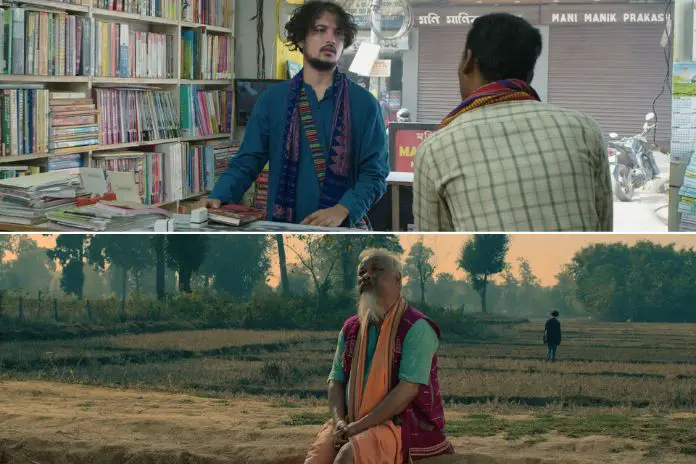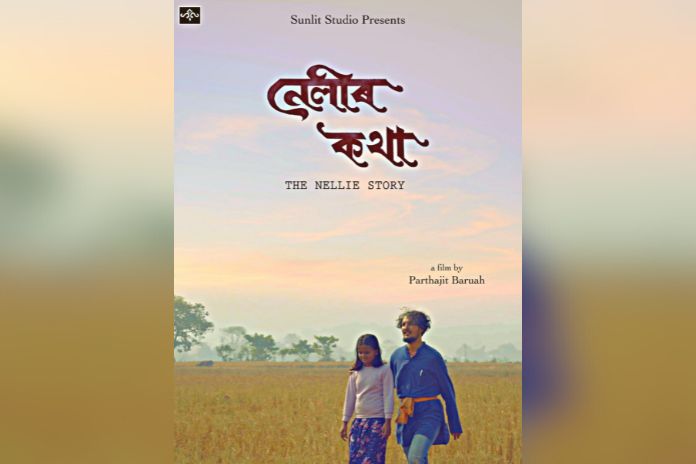After his successful foray into documentary filmmaking, film researcher and scholar, Parthajit Baruah has turned to feature film making with his upcoming film, Nellier Kotha (The Nellie Story). The film, which stars Arghadeep Barua in the lead role, takes a humanizing look at the Nellie massacre, a dark chapter in the socio-political history of Assam. The massacre, which took place in 1983, saw the brutal killing of religious minorities in Nellie and its neighbouring villages in the then Nagaon district of Assam.
The massacre was a direct result of the anti-foreigner Assam Movement (1979-1985) which sought to expel illegal immigrants from Assam. Baruah’s film is a timely reminder of the horrors of communal violence of the past and its impact on the present. Told from the perspectives of a young research scholar, Rajiv Pator, a PhD candidate at Gauhati University, the film provides a humanizing account of one of the tragic and unfortunate events in the history of Assam.

Forty years after the massacre, Rajiv Pator visits the site and discovers that the Muslims of the villages are hardworking individuals who are constantly making efforts to integrate with the Assamese community. His preliminary study also revealed a reality that differed from the widely accepted account of the event. However, he had yet to uncover many truths about Nellie.
“The Nellie massacre is a darkest chapter in the history of Assam, as it had resulted in the death of a large number of Muslim people. It had also caused a major disruption to the social fabric of the larger Assamese community. And in my film I have attempted to illustrate a very humane approach to the subject”, says writer-director Parthajit Baruah.
The film also stars Mintu Baruah, Dhanajay Debnath, Swagata Bharali and Dr Asha Kuthari Chaudhuri along with Prof. Amrita Chakravarty, Tuntun Sarmah, Royonti Rabha, Samar Jyoti Sarkar, Dr. Akash Plabon, Boishnavi Bora, and Sudarshan Nath among others.
The Nellie Story is characterized by its sensitivity and respect for the lives that were lost. It adheres closely to the historical record, and its focus on the human dimension of the tragedy provides a valuable corrective to the often-sensationalized and ideologically-charged accounts of the massacre.
The film is shot in the real locations of Nellie by Sumon Dowerah with music by Daniel Engti and editing by Hirak Jyoti Pathak.

